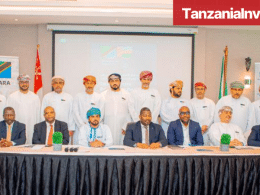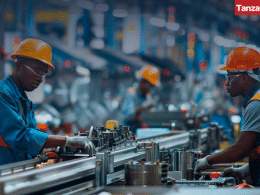Discussions about the state of the Tanzania industry took place last week in Dar es Salaam on the occasion of the 19th Africa Industrialization Day.
The focus of the discussion was around the importance of the agriculture sector to the industrialization of Tanzania as well as the importance of buying locally produced items.
The theme of this year’s Industrialization Day was entitled ‘Processing of raw materials for sustainable industrial growth and development’ and was attended by members of both the African Union and the United Nations Industrial Development Organization (UNIDO).
During a speech at the event, which also marked the 10th Anniversary of the Tanzania Private Sector Foundation (TPSF), the current Vice President of Tanzania, Dr. Ali Mohamed Shein, emphasized the importance of buying local goods, using the slogan, “Buy Tanzania.”
According to Dr. Shein, the general industrial development of the African continent and, more specifically, of Tanzania was still severely lacking when compared with the rest of the industrialized world; however, he also went on to say that the purchase of locally produced goods would help to further develop, strengthen and augment the economic progress of the country.
“In buying locally made goods,” said Dr. Shein, “you will help create or maintain employment opportunities for Tanzanians and improve living conditions of the people in the country.”
In order to address this issue of development as well as the issue of poverty alleviation, Dr. Shein encouraged increased investment in the country’s manufacturing sector in addition to emphasizing the need to improve the quality of the products that are distributed in the domestic and the international markets.
“Most African industries lack advanced technology, which caters for the international markets,” he said, “We must strive to adopt modern and efficient technology to meet the international markets demands.”
In addition, Dr. Shein stressed the importance of public-private-partnership (PPP) as a way of boosting the industrial base in the country.
In order to meet these standards, local manufacturers will face several challenges, including poor technology, low product quality, lack of access to international markets and poor infrastructure in the areas of road development, power supply and water supply.
According to the Minister for Industry, Trade and Marketing, Dr. Mary Nagu, who was also present at the event, some of these problems have already begun to be addressed through the government sponsored industrial sector improvement plan known as the Sustainable Industrial Development Policy (SIDP), which is currently in Phase II of implementation and is scheduled to enter the third and final stage in 2010.









